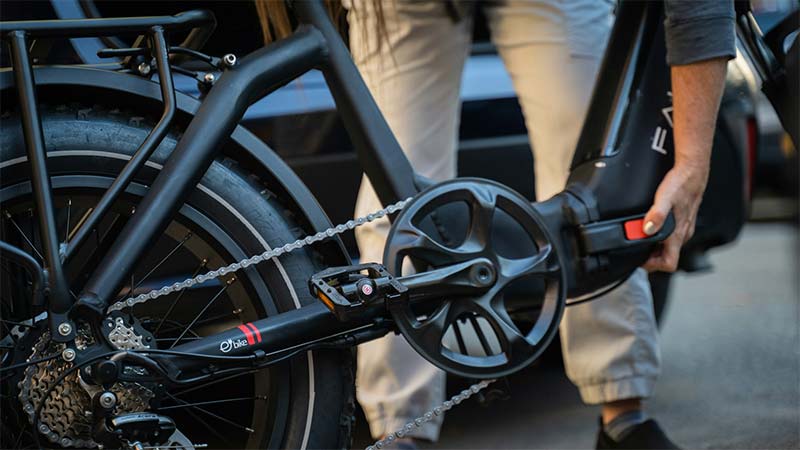
Electric bikes (ebikes) have surged in popularity, offering a green alternative to traditional transport. But while they’re kind on emissions, their batteries can pose a serious environmental hazard if not disposed of properly.
In this guide, we’ll break down how to safely and responsibly recycle or dispose of your ebike battery in the UK.
Why Ebike Battery Disposal Matters
Ebike batteries—usually lithium-ion—contain hazardous materials like cobalt, nickel, and lithium. Improper disposal can lead to:
- Fire risks in landfills or recycling facilities
- Ground and water pollution from toxic chemicals
- Wasted valuable metals that could be recovered
According to Recycle Your Electricals, around 75% of materials in lithium-ion batteries can be recovered and reused, making recycling not just responsible but essential.
What Type of Battery Does Your Ebike Use?
Most ebikes use lithium-ion (Li-ion) batteries, but a few older or budget models may use:
- Nickel-Metal Hydride (NiMH)
- Sealed Lead-Acid (SLA)
The battery type determines how it should be handled and where it can be recycled.
Here’s a quick comparison:
|
Battery Type |
Common In |
Hazards |
Recyclable? |
|
Lithium-ion |
Modern ebikes |
Fire risk, toxic metals |
Yes ✅ |
|
NiMH |
Older models |
Less hazardous |
Yes ✅ |
|
SLA |
Rare, heavy-duty use |
Lead contamination |
Yes, but requires special handling ⚠️ |
How to Safely Dispose of an Ebike Battery in the UK
1. Check the Manufacturer’s Policy
Many brands offer take-back or recycling programmes. For example:
Always contact the brand or check their website first.
2. Use a Certified Recycling Scheme
Authorised battery recycling schemes in the UK include:
- Recycle Your Electricals
- Valpak Battery Box
- ERP UK
These services direct you to the nearest drop-off points for batteries.
3. Do NOT Dispose in Household Waste
Placing batteries in household bins is illegal in the UK. It can also cause fires in waste facilities. Always use a designated battery collection service.
4. Transport and Store with Caution
If you're storing or transporting a used ebike battery:
- Place tape over the terminals to prevent short circuits
- Use a fireproof bag or box
- Avoid puncturing or crushing the battery
UK Regulations on Battery Recycling
Under the UK Waste Batteries Regulations 2009, all battery producers must finance the collection and recycling of waste batteries. Retailers selling more than 32kg of batteries per year are legally required to offer free recycling.
Environmental Impact of Improper Battery Disposal
A lithium-ion battery in landfill can leach:
- Lithium, contaminating groundwater
- Cobalt and Nickel, harming aquatic life
- Carbon emissions, from lost materials that must be newly mined
By recycling, you reduce demand for new mining and cut down greenhouse gas emissions linked to raw material extraction.
Best Practices for Battery Disposal
- Don’t hoard used batteries—recycle them promptly
- Use a fireproof storage bag if waiting to recycle
- Check for damage before transport; if the battery is leaking or swollen, contact your local council for special handling
- Educate others: spread awareness about the dangers of improper disposal
Final Thoughts
Recycling ebike batteries isn’t just a green initiative—it’s a legal and environmental responsibility. With so many schemes available across the UK, it's easier than ever to do your part. Whether you ride for commuting or leisure, make sure your battery has a sustainable afterlife.

